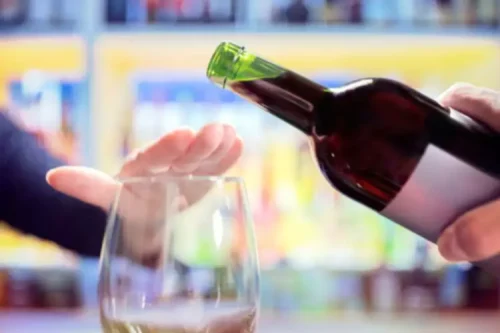
Individual withdrawal symptoms vary based on a person’s age, the amount of wine consumed and their gender. This topic has been a subject of debate for many years among wine enthusiasts, researchers, and health experts. As a wine enthusiast, I have often pondered the addictiveness of this beloved drink. In this article, I will delve into the science behind wine addiction, share my personal observations, and offer a comprehensive viewpoint on this fascinating subject. Understanding the treatment options for alcohol addiction is just the first step in unraveling the role of wine in addiction. It is essential to explore how wine specifically affects individuals and whether it has the potential to become addictive.
How to Overcome a Wine Addiction
- Our best defense is understanding its power, recognizing our vulnerabilities, and staying far from the edge of the cliff.
- It can also lead to depression and anxiety, as well as interfere with relationships, work, and other aspects of life.
- This is true regardless of the type of alcohol, e.g. beer, wine, or liquor.
- Alcohol addiction, also known as alcoholism, is a serious condition that affects millions of people worldwide.
If you or a loved one struggles with wine addiction, please reach out to an Ark Behavioral Health specialist. Our substance abuse treatment centers can help you live a healthy, alcohol-free life. One of the most common signs of wine addiction is the presence of withdrawal symptoms when a person quits using it. Withdrawal symptoms are the body’s reaction to the lack of something it has been trained to believe was vital. Wine addiction is a serious condition that can cause serious health complications and financial difficulties. It is important to recognize the signs of wine addiction and to seek treatment if you or someone you know is struggling with an addiction to wine.
- At 120 calories, she says drinking one glass of red wine each night equals 840 calories a week, or 3,360 calories a month.
- The psychological effects of alcohol consumption have been studied extensively.
- Many people suffering from alcoholism need to re-learn to live, handle stress and cope without alcohol.
- If you’re addicted to wine and suddenly quit drinking alcohol, you’ll likely experience withdrawal symptoms.
- That theory describes a “dark side of addiction” where repeated heavy drinking over time leads to changes in the brain systems involved in stress and reward.
Wine Addiction: Does Wine Alcoholism Exist? Effects And Dangers
According to the Centers for Disease Control and Prevention, binge drinking is the most common, costly, and deadly pattern of excessive alcohol use in the United States. The average alcohol content by volume (ABV) for wine is 11.5 to 13.5 percent, which is considered a medium-alcohol content. A standard is wine addictive serving of wine is five ounces, and the average bottle contains 750 milliliters (25.4 ounces). The easiest way to see if your wine habit has turned into a problem? If drinking isn’t an issue for you, you shouldn’t have an issue forgoing the booze.
Others are noticing your drinking habits.
Similarly, you might engage in risky sexual behaviors, such as unprotected sex with multiple people. This behavior increases your risk of sexually transmitted diseases and unwanted pregnancy. Consuming even a small amount of alcohol can leave you feeling off, regardless of whether or not you develop a hangover. Like all alcohol, especially when consumed in excess, wine lowers your inhibitions and interferes with judgment. Everyone is different, so the amount of wine that is safe to drink varies from person to person. Alcoholic blackouts happen when you consume too much Oxford House alcohol too quickly.
They don’t happen to everyone, and the relationship between blackouts and addiction isn’t clear. By clicking “Submit,” you certify that you have provided your legal name and phone number, agree to the terms and conditions and privacy policy, and authorize California Behavioral Health. You consent to receive SMS notifications and promotions from California Behavioral Health. https://ecosoberhouse.com/ Ultimately, a fulfilling life filled with joy and purpose is the best defense.

Chronic alcohol abuse can lead to liver damage, cardiovascular problems, and even increased risk of certain types of cancer. Additionally, it can negatively impact mental health, relationships, and overall quality of life. At Gateway Foundation, we understand that everyone’s experience with addiction is different.
- The National Institute on Alcohol Abuse and Alcoholism reports that up to 15.1 million adults have Alcohol Use Disorder, a chronic disease characterized by uncontrolled consumption of and dependency on alcohol.
- Heavy drinking can also cause problems well beyond the health of the drinker — it can damage important relationships.
- The more I rely on it, the more I might crave it to numb the increasing misery in my life.
- In this article, I will delve into the science behind wine addiction, share my personal observations, and offer a comprehensive viewpoint on this fascinating subject.
Whatever the reason, if you’ve attempted to control your drinking but found yourself opening a bottle despite your promises to yourself, then you might have a problem. AddictionResource aims to present the most accurate, trustworthy, and up-to-date medical content to our readers. Our team does their best for our readers to help them stay informed about vital healthcare decisions.
It’s worth noting that current guidelines advise against drinking alcohol as a way to improve health. BetterHelp offers affordable mental health care via phone, video, or live-chat. Eventually, people who binge often can also experience brain damage, which affects memory and decision-making and self-sufficiency abilities. Understanding your risks and doing your best to reduce them is the best way to prevent substance addictions.

What Amount Of Wine Is Safe To Drink?
In addition to seeking professional help, support groups such as Alcoholics Anonymous can be immensely beneficial for individuals struggling with alcohol addiction. These groups provide a safe and non-judgmental environment where individuals can share their experiences, find support, and learn from others who have successfully overcome addiction. The effects of alcohol on the brain are complex, and improved understanding of the factors that affect an individual’s vulnerability to AUD and depression is critical to identify and initiate early, effective treatment. However, few studies have examined how people with AUD respond to alcohol either in controlled laboratory settings or the natural environment; including individuals with AUD and another co-morbid diagnosis adds to the complexity. Even though I probably won’t continue to incorporate a glass of red into my daily routine, I was surprised to find how much I liked the ritual.
- In conclusion, wine is not considered an addictive substance in the traditional sense.
- – Responsible wine consumption is important, and guidelines should be followed, including moderation, knowing personal limits, staying hydrated, and seeking professional advice if needed.
Red wine and skin

As a nation, we owe a debt of gratitude to the brave men and women who have served our country in the armed forces. Many of these veterans have put their lives on the line to defend our freedom and our way of life. Check out our blog posts and resource links for the latest information on substance abuse. Most facilities offer both inpatient and outpatient treatment programs.







